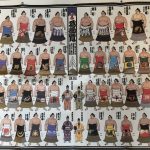How To Say “Great” In Japanese (+good and best)
Title: How To Say “Great” In Japanese (+good and best) Introduction: Welcome to our comprehensive guide on how to express greatness, goodness, and the best in the Japanese language. At [Your Website Name], we are dedicated to providing you with the most up-to-date and valuable information on various aspects of Japanese culture, including language. In […]
Title: How To Say “Great” In Japanese (+good and best)
Introduction:
Welcome to our comprehensive guide on how to express greatness, goodness, and the best in the Japanese language. At [Your Website Name], we are dedicated to providing you with the most up-to-date and valuable information on various aspects of Japanese culture, including language. In this article, we’ll delve into the diverse ways to convey the concept of “great” in Japanese, along with its counterparts for “good” and “best.” Join us on this linguistic journey as we explore the nuances of Japanese expressions. Don’t forget to follow us for more insights on How To Say “Great” In Japanese (+good and best)!
1. “Great” in Japanese – 素晴らしい (Subarashii):
When it comes to expressing greatness in Japanese, the word you’re looking for is “素晴らしい” (Subarashii). This versatile term can be used to describe something remarkable, wonderful, or fantastic. Whether you want to compliment a beautiful sunset, a delicious meal, or a talented artist, “素晴らしい” is your go-to word.
2. “Good” in Japanese – 良い (Yoi) and 良く (Yoku):
In Japanese, you can convey the idea of “good” using two main words: “良い” (Yoi) and “良く” (Yoku). “良い” is the basic form of “good,” while “良く” is an adverbial form that means “well” or “nicely.” These words are versatile and can be used in various contexts to express approval or satisfaction.
3. “Best” in Japanese – 最高 (Saikou):
When you want to emphasize that something is the absolute best, you can use the term “最高” (Saikou). It represents the pinnacle of excellence and is perfect for describing top-notch experiences or products.
4. Other Expressions for “Great”:
Japanese language is rich in expressions, and there are several other ways to convey greatness:
- “素晴らしいですね” (Subarashii desu ne) – This phrase adds politeness and can be used when complimenting someone.
- “最高ですね” (Saikou desu ne) – Similar to the previous one, but specifically emphasizes the best quality.
- “素晴らしい経験でした” (Subarashii keiken deshita) – This expression is suitable for describing a fantastic experience.
5. How to Use These Expressions:
To use these expressions effectively, pay attention to the context and your relationship with the person you’re communicating with. Being polite and respectful is highly valued in Japanese culture, so choose your words accordingly.
6. Conclusion:
In conclusion, mastering the art of expressing greatness, goodness, and the best in Japanese can greatly enhance your communication skills and deepen your understanding of this beautiful language. Whether you’re complimenting a friend, describing a meal, or expressing admiration for an achievement, knowing the right words can make all the difference. We hope this guide has been helpful in expanding your Japanese vocabulary. For more language insights and cultural exploration, follow us at [Your Website Name].
7. FAQ – How To Say “Great” In Japanese (+good and best):
- Q1: What is the most common word for “great” in Japanese?
- A1: The most common word for “great” in Japanese is “素晴らしい” (Subarashii).
- Q2: How do I say “good” in Japanese?
- A2: You can say “good” in Japanese as “良い” (Yoi) or “良く” (Yoku).
- Q3: What is the Japanese word for “best”?
- A3: The Japanese word for “best” is “最高” (Saikou).
Thank you for joining us on this linguistic journey! We hope you’ve gained valuable insights into expressing greatness, goodness, and the best in Japanese. Don’t forget to follow [Your Website Name] for more language and culture-related content.
key words
- learn japanese in 90 days 2024
- japanese in use everyday
- japanese for to day
- how to say i love you in japanese






